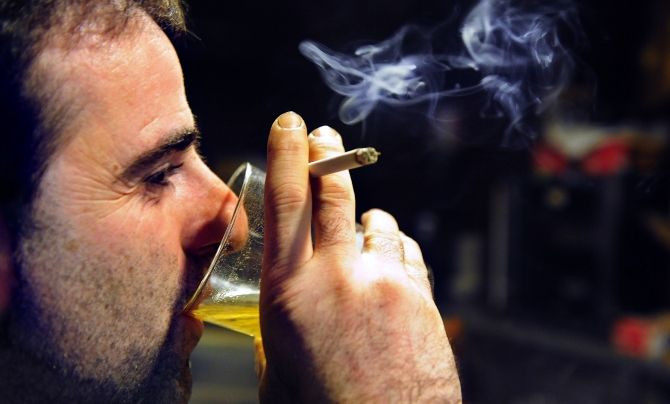Almost One-Fourth of US Suicide Victims Drunk at Time of Death

Alcohol makes people more prone to committing suicide by violent methods like hanging, using a firearm or by falling to death, says a new study.
Nearly, one-fourth of all suicide cases studied reported that the victim had blood alcohol levels of at least 0.08 g/dL.
Previous studies have said that suicide completers were more likely to test positive for alcohol. Experts say that the risk of suicide by lethal methods is more often in alcohol abusers than general population.
The study was based on an analysis of 58,000 suicide cases in 16 states. Researchers found that 22 percent of the victims were legally intoxicated at the time of death. Men (24 percent) were slightly more likely than women (17 percent) to have killed themselves while drunk.
"This is the largest study to date in the U.S. that looked at blood alcohol levels at the time of death. Most studies in the past have focused on the risk of suicide among people with chronic alcohol problems like alcoholism or alcohol dependence," said Dr. Mark Kaplan, professor of community health at Portland State University and the study lead researcher, according to FoxNews.
In the study, researchers found that in more than half of the suicide cases there was no prior history of alcohol abuse although many had a previous record of mental disorder. Other studies have shown that alcohol abusers who don't have any other mental disorders are at risk of committing suicide.
Alcohol's role in suicide is a widely studied topic. Many researchers treat alcoholism or alcohol intake prior to attempted suicide as a subset factor rather than a cause itself. A study from Australia said that victims who tested positive for alcohol were more likely to be young males with a recent breakup with intimate partner.
"One hypothesis is these were individuals responding to major life stressors or crises, who engaged in drinking with a firearm present within a few hours of taking their lives and became disinherited by the alcohol. They were drinking excessively in order to make it possible to die by suicide," Kaplan said.
"When you look at men who die by suicide across the age span, there is a dramatic reduction in the likelihood of intoxication among older men. For younger men, the act of dying by suicide may be more impulsive, and alcohol might facilitate the completion of that suicide. We’re more likely to see young men taking their lives in the presence of life crises such as financial problems, criminal justice problems or problems with an intimate partner," he said.
"In older age, it’s a more planned outcome. Older men are more likely to take their lives in the presence or chronic health problems," Kaplan added.
According to World Health Organization, a person dies of suicide every 40 seconds in the world. Suicide rates have increased by as much as 60 percent in less than half century.
WHO also says that in Europe and North America, alcohol abuse, mental disorders, depression etc. are the major risk factors while in Asia, impulsivity plays a major role in suicide.
The study was published online Thursday in BMJ’s Injury Prevention.
Published by Medicaldaily.com



























